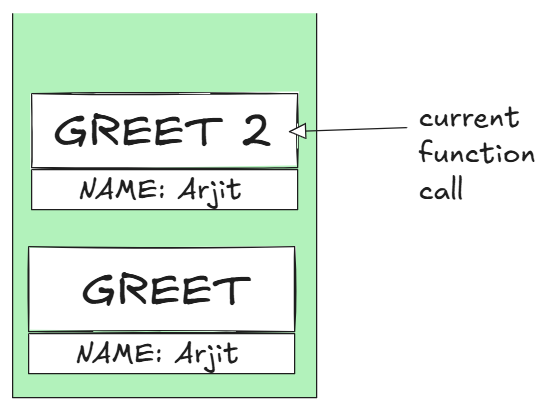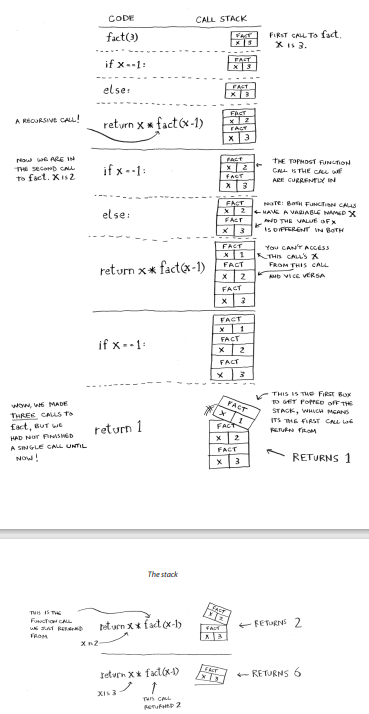Recursion
Recursion is a technique where a function calls itself to solve a smaller instance of the same problem. Every recursive function consists of two main parts:
- Base Case: The condition where the recursion stops.
- Recursive Case: The function calls itself with a smaller problem.
Example: Finding a Key in Nested Boxes
Imagine you have a large box filled with smaller nested boxes, one of which contains a key. How do you find the key?
Iterative Approach -
def look_for_key(main_box):
pile = main_box.make_a_pile_to_look_through()
while pile is not empty:
box = pile.grab_a_box()
for item in box:
if item.is_a_box():
pile.append(item)
elif item.is_a_key():
print “found the key!
Recursive Approach -
def look_for_key(box):
for item in box:
if item.is_a_box():
look_for_key(item) // Recursion
elif item.is_a_key():
print “found the key!”
In the recursive approach, the function keeps calling itself for each nested box until it finds the key (base case) or there are no more boxes left.
Stack (Data Structure)
A stack is like a stack of plates in a cafeteria. You can only add or remove plates from the top.
Advantage: Simple, fast addition/removal (LIFO). Disadvantage: Limited access, can’t easily reach items in the middle.
Understanding Call Stack
Recursion uses call stack. When a function calls itself, the current function call is paused and stored in memory until the recursive call completes.
def greet(name):
print “hello, “ + name + “!”
greet2(name)
print “getting ready to say bye...”
bye()
def greet2(name):
print “how are you, “ + name + “?”
def bye():
print “ok bye!”
Execution Flow:
greet("Arjit")is called and prints hello Arjit.greet2("Arjit")is added to the call stack and prints how are you Arjit?.greet2completes and is popped off the stack.- Execution returns to
greet(), which prints getting ready to say bye…. bye()is called, added to the stack, prints ok bye!, and is popped.
Idea is simple - When you call a function from another function, the calling function is paused in a partially completed state. All its values of variables are still stored in memory.

Call Stack with Recursion
def fact(x):
if x == 1:
return 1 # Base case
else:
return x * fact(x - 1) # Recursive case

Notice that each call to fact has its own copy of x. You can’t access a different function’s copy of x